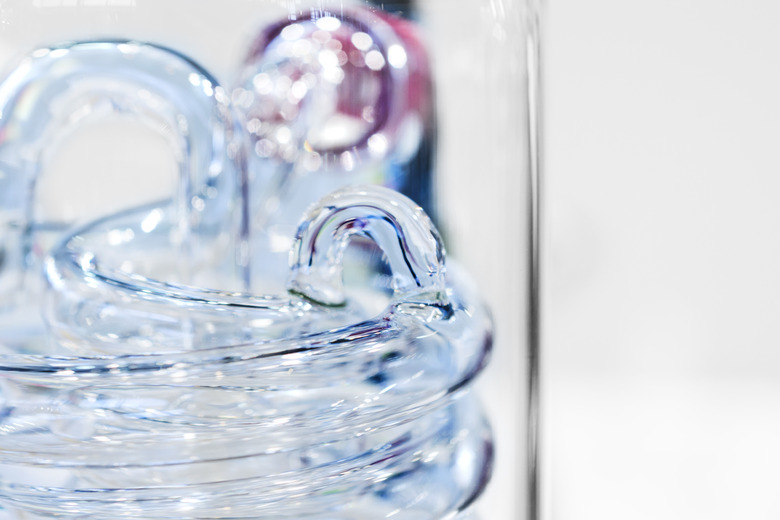How To Find Hydroxide Ion Concentration
Distilled water weakly dissociates, forming hydrogen (H+) and hydroxide (OH-) ions (H2O = H+ OH-). At a given temperature, the product of molar concentrations of those ions is always a constant: [H+] x [OH] = constant value. The water ion product remains the same constant number in any acid or basic solution. The logarithmic pH scale is commonly used to express the concentration of hydrogen ions. You can easy and accurately measure the pH of the solution with an instrument pH meter as well as estimate it using chemical indicators (pH paper).
Step 1
Determine experimentally–for example, with a pH meter–or obtain elsewhere the pH of the solution. For instance, the pH might be 8.3.
Step 2
Raise "10" to the power of "-pH" using a calculator to determine the concentration of the hydrogen ions [H+]. In our example [H+] = 10 ^ (-8.3) or 5.01 E-9 (the notation "E-9" means "ten in power -9").
Step 3
Obtain the water ion product at the temperature of interest using the table given in References. Note that in the vast majority of calculations the value of "1 E-14" corresponding to a temperature of 25 Celsius is used.
Step 4
Divide the magnitude "1 E-14" by the concentration of the hydrogen ions to determine the concentration of hydroxide ion [OH-]. In our example [OH-] = 1 E-14 / 5.01 E-9 = 2.0 E-6 molar.
References
- "Chemistry;" K.W. Whitten, R.E. Davis, L. Peck, and G.G. Stanley; 2009
- "Chembuddy.com:Water ion product"
Cite This Article
MLA
Writer, Contributing. "How To Find Hydroxide Ion Concentration" sciencing.com, https://www.sciencing.com/hydroxide-ion-concentration-5791224/. 13 March 2018.
APA
Writer, Contributing. (2018, March 13). How To Find Hydroxide Ion Concentration. sciencing.com. Retrieved from https://www.sciencing.com/hydroxide-ion-concentration-5791224/
Chicago
Writer, Contributing. How To Find Hydroxide Ion Concentration last modified March 24, 2022. https://www.sciencing.com/hydroxide-ion-concentration-5791224/
